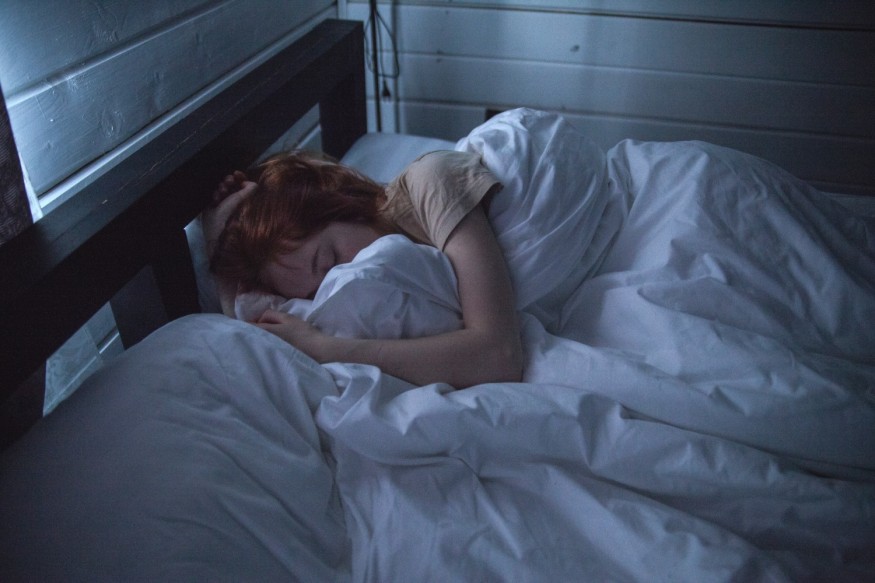
Sleep is not a luxury; it's a necessity. Our bodies require adequate and restful sleep to maintain our physical, mental, and emotional well-being. But, how much sleep do we need? While the answer varies from person to person, the National Sleep Foundation suggests that adults should aim for 7 to 9 hours of sleep each night. Yet, according to the CDC, more than a third of American adults are not getting enough sleep on a regular basis, leading to chronic sleep deprivation and an array of health issues. This growing epidemic not only affects our daily functioning, but also increases the risk of chronic conditions such as obesity, diabetes, cardiovascular disease, and even reduced life expectancy. For those who have trouble getting a good night's sleep, worry not. Keep reading to explore and learn science-backed ways to improve your sleep.
Establish a consistent sleep schedule
Our bodies thrive on routine, particularly when it comes to sleep. A consistent sleep schedule not only helps regulate our internal biological clock, but also improves the overall quality of our sleep. A 2014 study published in the journal "Sleep" found that people with irregular sleep patterns had poorer sleep quality, increased daytime sleepiness, and higher levels of depression and anxiety.
Create a sleep-friendly environment
Your bedroom should be a sanctuary for sleep. Factors such as temperature, noise, and light can significantly impact the quality of your rest. Research suggests that a cool, quiet, and dark environment promotes better sleep. The National Sleep Foundation recommends a bedroom temperature of around 65°F (18.3°C) for optimal sleep conditions.
Eucalyptus bedding
Eucalyptus bedding has emerged as a frontrunner in the quest for a perfect night's sleep. Made from fibers derived from eucalyptus trees, this type of bedding boasts numerous benefits, including its natural ability to regulate temperature, wick away moisture, and resist allergens. In addition, a eucalyptus bedding set is eco-friendly, as the trees from which it is sourced require less water and pesticides to grow. A 2018 study in the "Journal of Sleep Research" found that participants who slept on eucalyptus sheets experienced less tossing and turning, ultimately leading to improved sleep quality.
Limit exposure to screens before bedtime
The blue light emitted by screens on electronic devices can interfere with our body's natural production of the sleep hormone melatonin, making it more difficult to fall asleep. A 2015 study published in "Proceedings of the National Academy of Sciences" found that individuals who read from an electronic device before bed took longer to fall asleep and experienced reduced REM sleep, which is crucial for memory consolidation and emotional regulation.
Incorporate relaxation techniques
Relaxation techniques such as mindfulness meditation, progressive muscle relaxation, and deep breathing exercises have been shown to improve sleep quality and reduce insomnia. A 2015 study published in "JAMA Internal Medicine" demonstrated that mindfulness meditation led to significant improvements in sleep quality and fewer symptoms of insomnia, depression, and fatigue among older adults with sleep disturbances.
Exercise regularly
Regular exercise has been linked to improved sleep quality and increased sleep duration. A 2017 study in the "Journal of Sleep Research" found that moderate to vigorous physical activity during the day led to better sleep quality and increased sleep efficiency in adults with insomnia.
Watch your diet
Certain foods and beverages can negatively impact your sleep. Caffeine, alcohol, and heavy or spicy meals close to bedtime can disrupt your sleep cycle. It is recommended to limit caffeine intake after mid-afternoon, avoid heavy meals within three hours of bedtime, and limit alcohol consumption to give your body time to metabolize it before sleep. A 2016 study published in the "Journal of Clinical Sleep Medicine" found that a high sugar and low fiber diet was associated with lighter, less restorative sleep.
Prioritize natural light exposure
Exposure to natural light during the day helps regulate our circadian rhythms, which in turn, promotes better sleep. A 2014 study published in the "Journal of Clinical Sleep Medicine" found that workers with more exposure to natural light experienced longer and better quality sleep compared to those with less light exposure.
Cut out daytime naps
While short power naps can be beneficial, long or irregular naps during the day can negatively affect your sleep. Napping for extended periods can confuse your internal clock, making it harder to fall asleep at night. A 2016 study in the "Journal of Sleep Research" found that longer daytime naps were associated with a higher risk of developing metabolic syndrome, a cluster of conditions that increase the risk of heart disease, stroke, and diabetes.
Seek professional help if necessary
If you've tried the aforementioned strategies and still struggle with sleep, it may be time to consult a healthcare professional. Sleep disorders, such as sleep apnea or insomnia, may require specific treatments or interventions to improve your sleep quality.
Sleep is not only essential for our well-being, but it also holds the key to unlocking our full potential. The famous playwright William Shakespeare once wrote, "Sleep that knits up the raveled sleave of care, The death of each day's life, sore labor's bath, Balm of hurt minds, great nature's second course, Chief nourisher in life's feast." Indeed, sleep is a vital component of a healthy lifestyle, and by incorporating these ten science-backed strategies, you can pave the way to a more restful and rejuvenating slumber. Sweet dreams!
© 2025 ScienceTimes.com All rights reserved. Do not reproduce without permission. The window to the world of Science Times.











